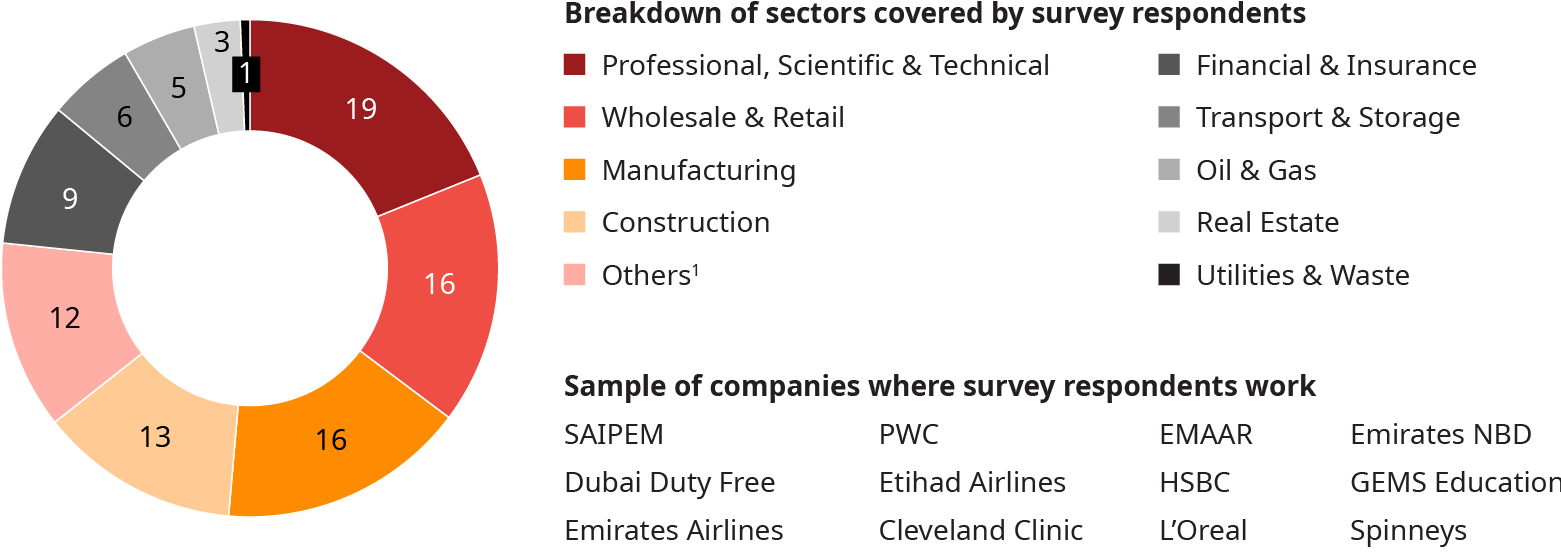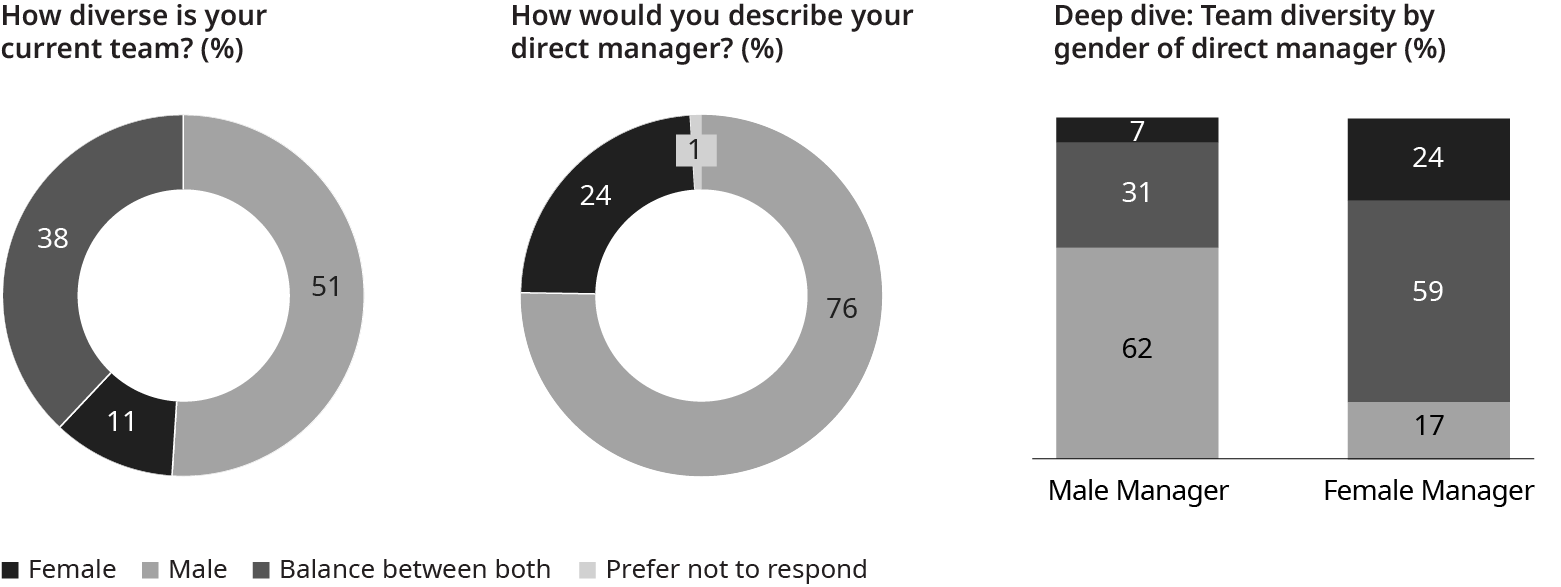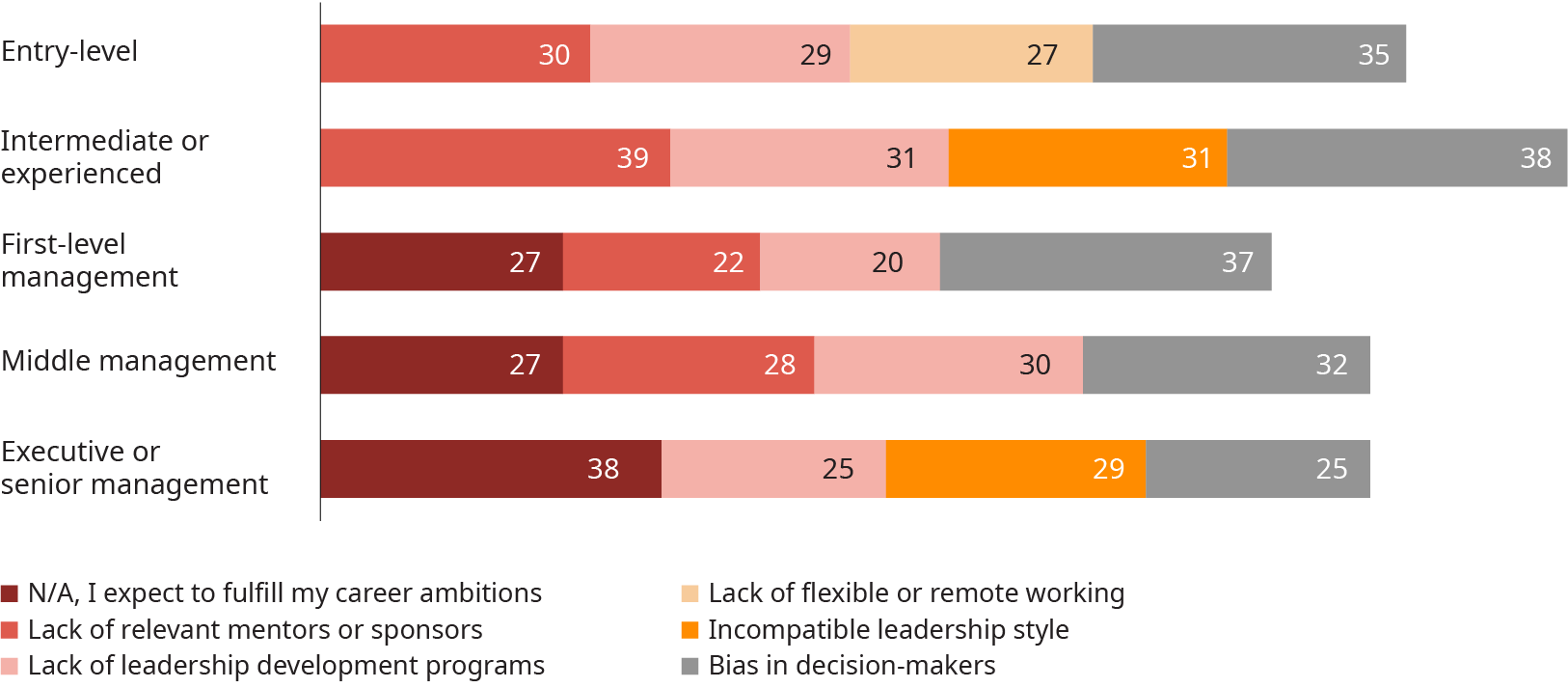In today’s rapidly evolving business landscape, diversity and inclusion have become crucial factors for success. Gender equity is no longer just a social responsibility, but a strategic imperative that helps organizations thrive. Diverse teams drive innovation, foster creativity, and delivery superior business performance.
The United Arab Emirates (UAE) has made significant progress in advancing gender balance, particularly in the public sector. However, efforts to promote gender diversity in the private sector have been hindered by a data gap. Existing research is based on global or regional perspectives, failing to capture the unique dynamics of the UAE private sector.
As part of our “Women In The UAE Private Sector” report, we conducted a survey in 2023, reaching out to 800 people working in the UAE private sector — 500 women and 300 men. The goal was to understand what can be done to support a balanced, gender-diverse, and inclusive workforce in the UAE, and explore what companies and policymakers can do to promote gender parity. Our report asks and answers these questions with a specific focus on the UAE private sector.

Cultural contrasts — The unique challenges for women in the UAE
The first set of insights illuminates four key findings that distinguish the UAE from the rest of the world:
Most women in the UAE have advocated for themselves in private
Two-thirds of women in the UAE have advocated for themselves for promotion and 80% have been successful. However, despite the relative success of self-advocacy in one-on-one settings, only 57% of women feel comfortable speaking up in meetings, versus 69% of men.
 We do a pay review every year and HR does a gap analysis for each job band — they look at comparable jobs and calculate the average of men’s pay and compare it with the average of women’s pay. We rarely find gaps over 5% and when we do, we make adjustments. We also look at the percentages of women being promoted across every band, versus men. These practices are institutionalized across all departments and geographiesC-level female Financial Services professional
We do a pay review every year and HR does a gap analysis for each job band — they look at comparable jobs and calculate the average of men’s pay and compare it with the average of women’s pay. We rarely find gaps over 5% and when we do, we make adjustments. We also look at the percentages of women being promoted across every band, versus men. These practices are institutionalized across all departments and geographiesC-level female Financial Services professional
Financial reward is the top motivator for women in the UAE
The number-one motivator for women in the UAE is financial reward. This is followed by praise and recognition. This focus on financial stability speaks to the UAE’s thriving economic landscape and underscores the economic aspirations of its women. Perhaps this focus is driven by the fact that 61% of women believe that their company ensures fair pay. Interestingly, this perception increased as women become more senior.
Both men and women believe that gender quotes or targets are helpful
90% of men and women in the UAE believe that gender quotas or targets are at least “helpful.” This perception of targets increases with seniority, with 92% of executives or those in senior management reporting that targets are necessary (53%) or helpful (39%).
Men and women agree on the attributes that are essential for leadership in their organization
The survey required participants to rank the top eight traits for becoming a leader in their organization and surprisingly, men and women provided identical rankings, from 1 to 8. This alignment underscores a common understanding of the key attributes essential for success in the UAE private sector. These traits are, in order of noted importance, confidence, creativity, directness, empathy, collaboration, humility, competitiveness, and decisiveness.
Shared ambitions — global parallels in the UAE workforce
The second set of insights presents experiences, challenges, and aspirations that match with global findings — underscoring the cross-border similarities between the UAE and the rest of the world.

Female leaders cultivate gender-diverse teams
The importance of a proportional representation of women in leadership came through in the survey: 76% of participants have male managers, and only 40% work in gender-balanced teams. However — and this is key — teams led by women in the UAE are twice as likely to be gender-balanced than those led by men.
Women in the UAE need sponsorship, networking, and affordable childcare to advance their careers
29% of women rated a lack of access to relevant mentors and sponsors as a barrier to career progression, making it the second leading reason after bias. This is backed up by the fact that women rated networking as the top training they would find beneficial, particularly earlier in their careers when there are likely fewer opportunities to meet potential mentors and sponsors. They are also four times as likely as men to identify the lack of subsidized or onsite childcare as a career roadblock.

Despite their importance to Gen Z, flexible and remote work are not yet practiced widely in the UAE private sector
A substantial 27% of entry-level professionals in the UAE cited the lack of flexible or remote work as a career limiter, demonstrating the changing expectations of the future workforce.
Tackling exclusion, bias, and microaggressions is key to motivating a diverse workforce
Almost two-thirds of women (63%) have experienced exclusion or unwelcome and offensive targeting in the workplace, versus 50% of men. Among the nationalities surveyed, these rates are lower for non-UAE-national Arabs and are highest for Asian women.
The next steps in the UAE’s gender equity journey
Current private sector interventions to improve the representation of women in leadership positions are already making an impact. A remarkable 97% of participants view these efforts as at least “moderately effective.” As companies embrace inclusivity and individuals drive their growth, the UAE has the potential to become a global champion for gender equity. The research-supported action points in this report are intended to drive positive change in this critical endeavour.
